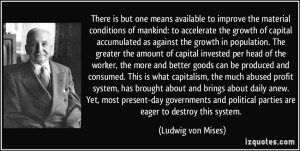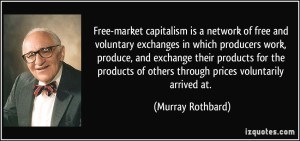By Paul Rosenberg, Freemansperspective.com

When I was a young man, the older men I admired were the independent businessmen. Being a corporate suit issuing orders to underlings never appealed to me, but being a successful man who controlled his own life and business… that did.
Perhaps as a result, most of my friends are independent business people of one sort or another. Not long ago, I had a notable conversation with one of them, during which he said:
You know, Paul, business used to be fun. I’d take my children around and show them what we were doing, and explain the differences we’d make.
I waited just a beat as he winced and then continued:
Now, I don’t want to drag my kids into my business. Every time I move, there are regulations, permissions, forms to file. It takes up most of my time, for nothing. Business isn’t fun anymore. If I could find something else, I’d get out.
And this is a man who has been in his business since childhood, who loves to tell stories about it, and who used to enjoy his work immensely. If this guy is looking for the exit, the problem is dire.
It’s pretty obvious why
I have limited faith in government statistics, but there are a few informative ones on this subject:
The US Small Business Administration (SBA) recently reported that the annual cost of complying with government regulations is more than one trillion dollars per year and has been since 2005.
It goes on to report that big businesses (500+ employees), pay about $7,550 per employee to comply with the regulations. Small businesses, on the other hand (up to 20 employees) pay about $10,600 for every person they employ. And this is just one reason why small, independent businesses are being swallowed up by giant corporations.
Also bear in mind that this is just the cost of compliance with federal regulations. States also impose regulations on businesses. So do most of the county and city governments, especially large city governments.
New rules are produced constantly, and the cost of compliance rises constantly. In the US (and many other places), the cost of doing business has long since become prohibitive.
The Work-Arounds
Clever folks always find ways to get around this insanity, of course. But those ways are extra work and probably help relatively few people.
#1: They get rid of their employees
They find niches in their fields that allow them to escape the endless paperwork, penalties, and senselessly wasted time that comes with being an employer. (If you’ve ever had employees, you know what I mean.)
And what of the workers? Well, some get hired by the few related-industry employers that remain, while others have to take a mind-numbing mid-level corporate job just to pay the bills or get insurance. The rest are living on food stamps, disability, or a dozen other welfare programs.
#2: They go offshore
If your business is not resident where the regulators are, they usually can’t say anything about it.
Not many business people have moved abroad, but lots of them have set up offshore companies and are conducting business on the Internet. These people get their lives back… if they can find a way to make it work.
That is the dirty little secret of offshore companies, by the way: It’s not about escaping taxes; it’s about escaping all that ridiculous, insulting, pointless paperwork. No more spending days crunching numbers at tax time, no filing new reports every time you do something. You just take care of your customers and deliver good product. (Which ought to be enough.)
#3: They pay politicians for protection
Why would anyone donate thousands of dollars to a politician unless they expected to get something in return?
Big businesses pay politicians so that they can make a phone call to get problems that arise fixed. Small businesses can’t afford that, and most small business owners have moral problems with bribery.
Legit Is Dead
Unfortunately, the old “American way” of working hard, conducting honest business, and succeeding is gone, dead, and buried. It may still happen from time to time, but infrequently and off the beaten path.
Not long ago, I found this sign posted on a streetlight in Chicago:

The sign is right – the old “legit” way of doing business is dead. If you want to get ahead these days, you either try to play a game that is rigged against you, you pay politicians to bend the rules for you, or you avoid the situation entirely.
It seems that the best and brightest – the would-be drivers of the economy – are choosing the last option.
What does that say about where things are going?
Paul Rosenberg
[Editor’s Note: Paul Rosenberg is the outside-the-Matrix author of FreemansPerspective.com, a site dedicated to economic freedom, personal independence and privacy. He is also the author of The Great Calendar, a report that breaks down our complex world into an easy-to-understand model. Click here to get your free copy.]














